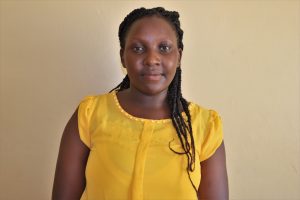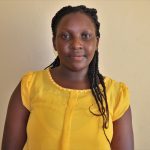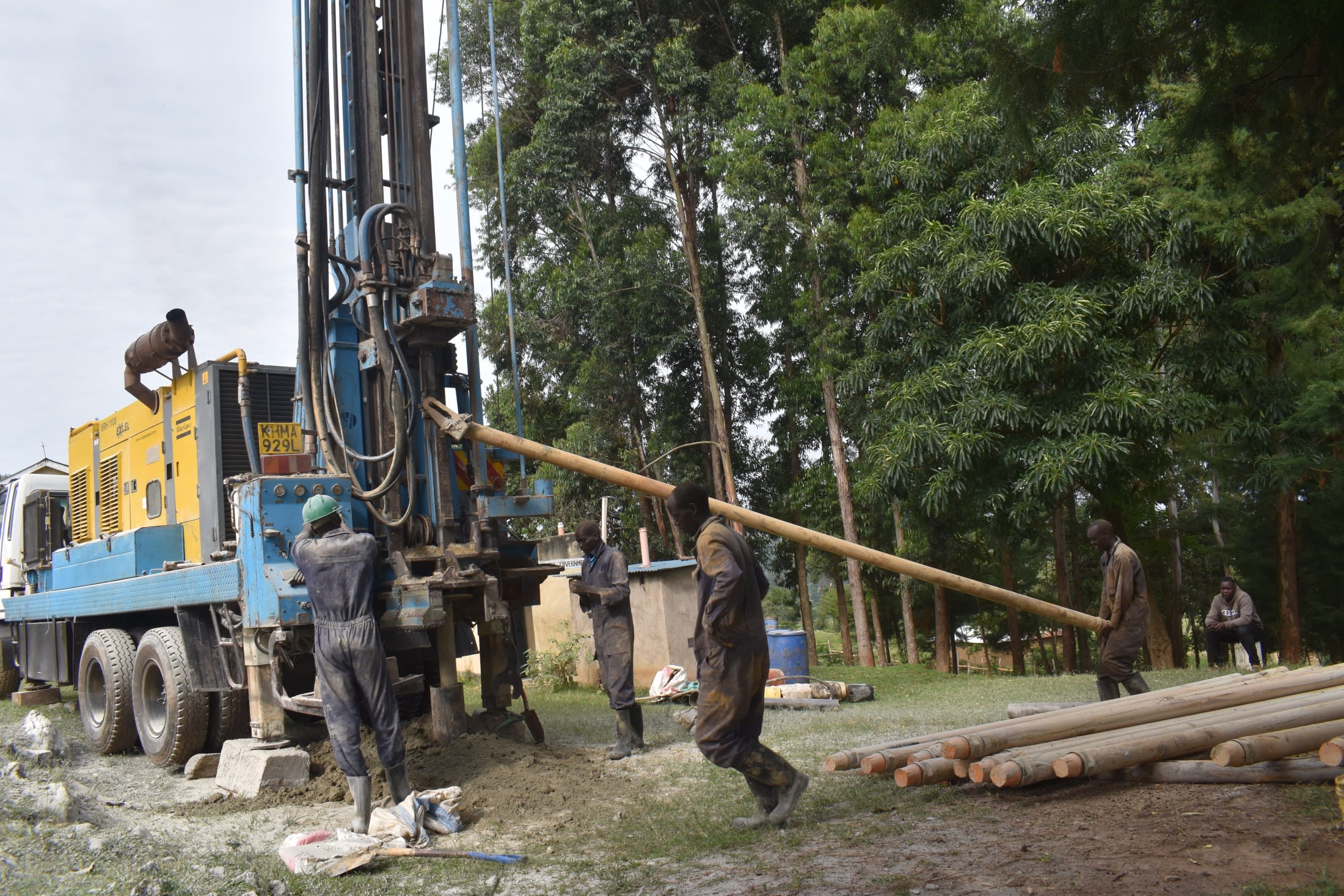The 767 students and staff at Mukhuyu Primary School never know where they will get their daily water.
The challenge of water scarcity at the school affects everyone's daily schedules. Students bring water from their homes each morning, but it is never enough to make it throughout the day.

The school's rainwater harvesting tanks are too small to hold enough water to meet demand, and a piped water stand connected to a local reservoir only works once or twice a week since it also serves the community.
When the rain tanks and tap stands are dry, and the water students carry to school runs out, students leave school during class to collect surface water from a local stream.
The stream is quite a distance away over hilly, rugged terrain. It isn't an easy trip, especially with heavy, full water jugs on the return journey. And the time spent collecting water and carrying water steals from students learning time. When they return, it is hard to concentrate in class because they are exhausted.

"Students waste their precious time meant for studies just to go for water outside the school compound. Besides that, a lot of students hate schooling because of the challenges they encounter when in school," said field officer Nelly Chebet.

"I was tired of carrying water which was being used for cleaning classrooms. Then [the] next day, I woke up late, picked [up] my five-liter container [to] collect water as I picked [up] my bag for school. Nearing the school, I was so late hence I opted [to go] back home rather than reach the school [and] be punished for being late," said 13-year-old student Sharon I. (shown above).
"[The] water challenge is [the] worst thing in the school because it affects [everything from] health aspects to school academic performances," said 32-year-old teacher Robert Cheruiyot (shown below).

Sadly, all of the students' work only culminates in contaminated that makes people sick.
"Water fetched from the source and placed in a clear container shows visible particles. Thus, it is not safe for human consumption," said Nelly. "A number of waterborne ailments have been reported in the school like typhoid, coughing, and headaches, which [are] attributed to consuming water from the school water sources."
"In [a] recent case, I was diagnosed [with] typhoid, which made me [miss] two days away from school. Because I was sick, I was not able to attend my lessons, and it also affects my learners [because] on that day they didn't learn," Robert said.
Installing a well at the school will help students and staff access sufficient, clean drinking water quickly. It should also relieve students of wasting their time meant for studies and hopefully improve everyone's health.
What We Can Do:
New Well
We conducted a hydrogeological survey at this school and the results indicated the water table beneath it is an ideal candidate for a borehole well. Due to a borehole well's unique ability to tap into a safe, year-round water column, it will be poised to serve all of the water needs for this school's large population, even through the dry months.
The school will help collect the needed construction materials such as sand, rocks, and water for mixing cement. They will also provide housing and meals for the work team, in addition to providing local laborers. We will complement their materials by providing an expert team of artisans and drilling professionals, tools, hardware, and the hand-pump. Once finished, water from the well will then be used by the school's students and staff for drinking, handwashing, cooking, cleaning, and much more.
Handwashing Stations
The student health club will oversee the two new handwashing stations we will provide, and make sure they are kept clean and in working condition. The club leaders will fill the handwashing stations with water daily and make sure they are always supplied with a cleaning agent such as soap or ash.
VIP Latrines
We will construct two triple-door latrine blocks using local materials that the school will help gather. Three doors will serve the girls and three doors will serve the boys. All of these new latrines will have cement floors that are designed to be easy to use and to clean. And with a borehole right on school property, there should be enough water to keep them clean.
Training on Health, Hygiene, COVID-19, and More
We will hold a one-day intensive training session with students, teachers, and parents. This training will cover a wide range of topics including COVID-19 symptoms, transmission routes, and prevention; personal and environmental hygiene; and the operation and maintenance of the borehole, latrines, and handwashing stations. There will be a special emphasis on handwashing.
Our team of facilitators will use a variety of methods to train, including participatory hygiene and sanitation transformation, and asset-based community development. We will initiate a student health club, which will prepare students to lead other pupils into healthy habits at school and at home. We will also lead lectures, group discussions, and provide illustrative handouts to teach health topics and ways to promote good hygiene practices within the school including handwashing and water treatment. We will then conduct a series of follow-up trainings before transitioning to our regularly scheduled support visits throughout the year.
We and the school strongly believe that all of these components will work together to improve standards at this school, which will help lead to better student academic performance and will help unlock the opportunity for these students to live better, healthier lives.







 Rehabilitation Project
Rehabilitation Project


































